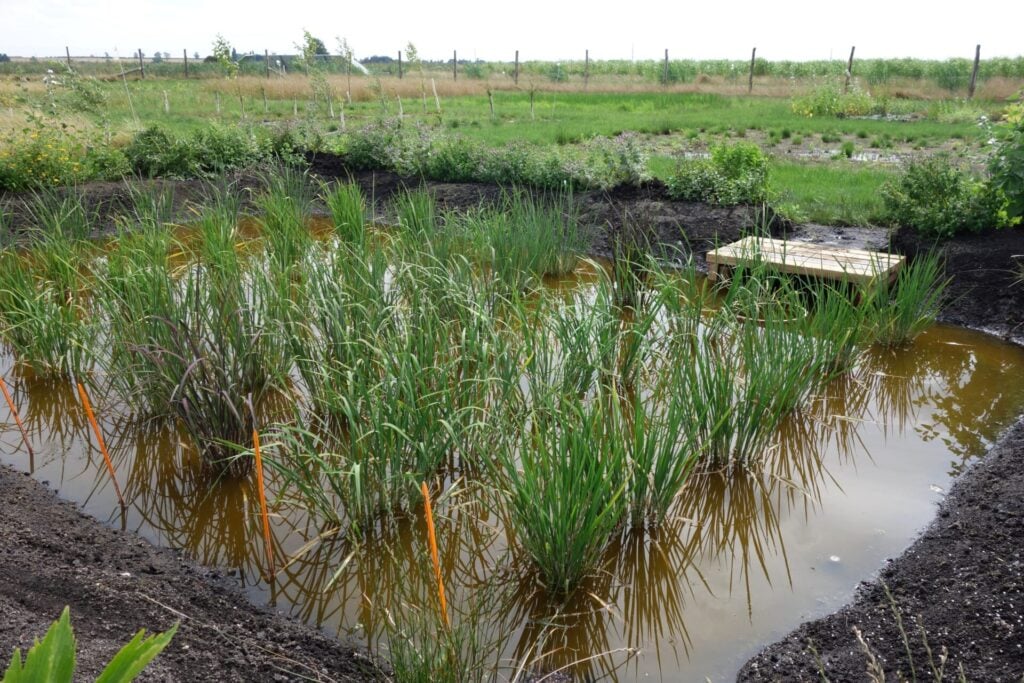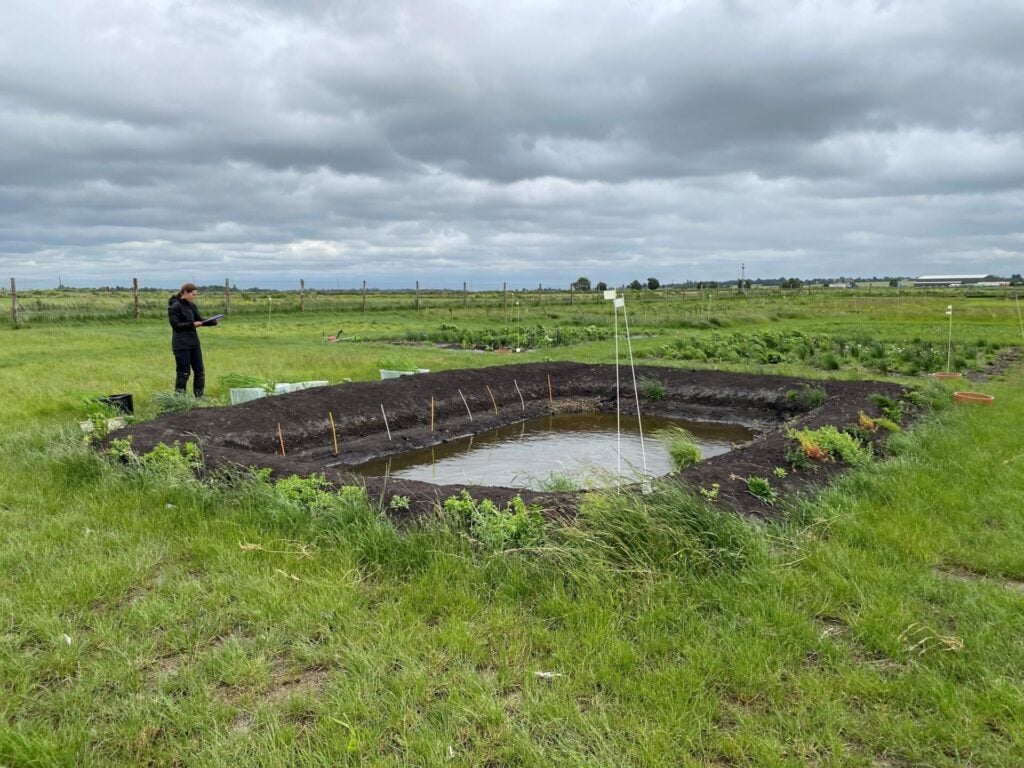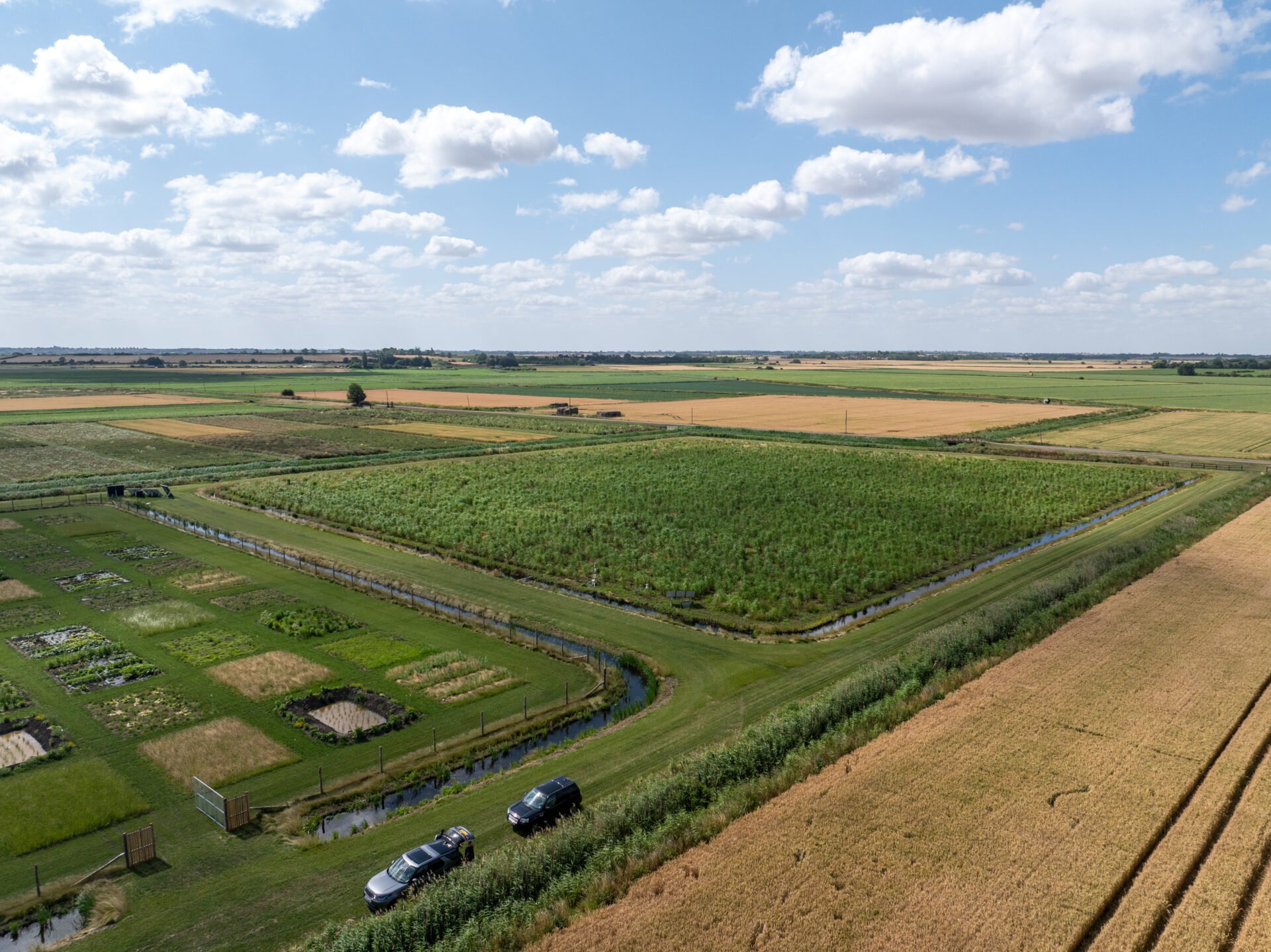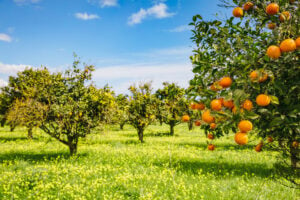Rice has been grown in Britain for the first time in history as rising temperatures impact farming practices. The country’s first ever crop is set to be picked from newly created paddy fields a few miles north of Ely in Cambridgeshire, meaning English rice could form part of the national diet in coming years.
The nine varieties – which include plants from Brazil, Colombia, and the Philippines – were planted in spring and grown over the course of the hottest summer since records began in 1884.
Nadine Mitschunas, from the Centre for Ecology and Hydrology (UKCEH), who has been leading the study, said that when she tells people she’s growing rice in the UK, they think she’s joking.
‘Nobody has tried this before, but with climate change, we have crops that 10 years ago, we wouldn’t have thought would be viable,’ she said. ‘In 10 years time, rice could be a completely perfect crop for us.’

The Fens originally held around 150,000 hectares of peatland. As a result of drainage for agriculture, much of this peat has been lost, leaving just a thin peaty topsoil. Approximately 24,000 hectares of peat are thought to remain, but this area is continuing to decrease.
Why English Rice Could Be a Climate Solution
Rice cultivation on rewetted peatlands is part of a climate-smart approach known as paludiculture, or ‘wet agriculture’ on peat soils. Rather than draining peat to grow conventional crops (which dries out the soil, accelerates peat loss, and releases stored carbon), paludiculture lets the land stay wetter, slowing down emissions while still allowing productive use of the land.
The Cambridgeshire Fens produce crops worth around £1.2 billion per year and account for a third of the UK’s fresh vegetables. However, this has required draining the wetlands, resulting in the loss of up to 12mm of peat every year, thereby releasing carbon that has been built up and stored in the wetland soils over thousands of years.
‘Nobody has tried this before, but with climate change, we have crops that 10 years ago, we wouldn’t have thought would be viable. In 10 years time, rice could be a completely perfect crop for us’
Nadine Mitschunas, Centre for Ecology and Hydrology (UKCEH),
Professor Richard Pywell, also from the Centre for Ecology and Hydrology, said Britain is currently right at the edge of rice’s range.
He explained: ‘By its very nature, this is an experiment and so it will be interesting to see how the traditional produce and novel crops like rice perform on the rewetted peat soils alongside other land use options such as biomass production and habitat for nature.

‘We hope to be monitoring the site over the coming years to assess the long-term viability and resilience of these land use options to a changing climate.
‘Our detailed measurements of the rewetted peats will include greenhouse gas emissions, carbon stocks, water use, crop yield and the impacts on nature. These will help farmers and policymakers decide on the best path to take for the Cambridgeshire Fens for livelihoods, the environment and nature.’
Sarah-Jane Taylor farms land near Ely, close to where the english rice trials are taking place.
She said: ‘Our Fenland soils are some of the most productive in the country but are very susceptible to the changing climate and we need to adapt the crops we grow and how we grow them.
‘The trials are critical to understanding the practicalities of how we might go about large-scale rewetting of peat, including its impact on yields and farm income, as well as the potential wider benefits for wildlife and flood prevention.’
The rice seeds were supplied by the UK’s Agricultural Research Service and propagated in UKCEH’s glasshouse in Oxfordshire. The young plants were transplanted into four specially constructed mini paddy fields with the first harvest expected in October.










